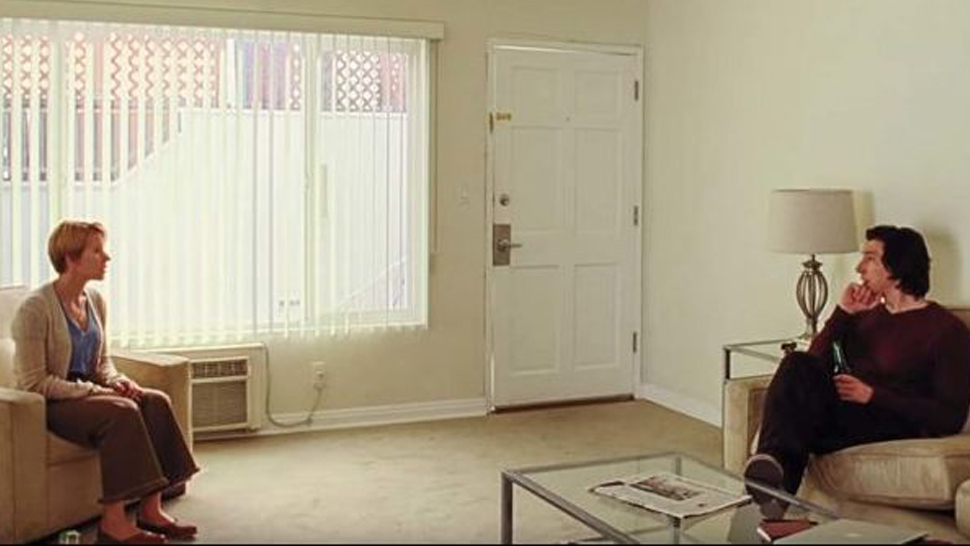SEX & RELATIONSHIPS | What To Do If Your Partner Has A Different Sex Drive To You
We asked a therapist how to tackle the common problem of having a different libido to your other half.

If communication if the key to a good relationship, then surely it is also the shortcut to a fulfilling sex life within said relationship?
That’s easier said than done when it comes to being open about your desires if you feel they aren’t the same as your partner. This might mean feeling rejected because you feel you’re always the one trying to get something going, or inadequate because you don’t feel you can fulfill the needs of your partner.
There’s no need to feel guilt or shame about having a different sex drive to the person you’re with, we all have very different libidos which are constantly fluctuating, so it is only natural that a lot of relationships will end up with conflicting sexual desires.
We spoke to Denise Knowles, a relationship and sex therapist at Relate, who outlined some ways of dealing with mismatched sex drives that are more practical than just ‘learning to communicate’ and less severe than ending it for good.
Ads by:
Firstly though, do talk it out
Although arguing about sex is commonplace, “it is very uncommon for couples to be able to discuss it rationally,” Denise says. Even with someone we love sex is often something we would rather not openly dissect.
Denise explains the problem with talking about sensitive issues is we tend to “avoid hurting the other person so much we don’t pay attention to the hurt we are causing ourselves.” To communicate effectively try to be as explicit as possible about the specific things you need or don’t want and avoid talking in clichés or indirectly. “Take ownership of how you feel,” she suggests, “regardless of whether you are the one with the higher or lower sex drive.”
If it is difficult to know where to direct your conversation, address the following three areas first.
Ads by:
1| Figure out whether sex is actually the problem
It isn’t necessarily a bad thing if all you want to do when you’ve got a night home alone is sink into a Netflix series or go to sleep, but if getting it on has become the last thing on your mind, first of all, work out whether the sex itself is actually the problem.
“Often there can be issues in the daily grind of a relationship that contributes to bedroom problems but they aren’t being discussed,” Denise explains. “Work, money issues, children, not feeling supported; all of these things contribute to one person not wanting to have sex as much as the other.” If one of you is having a sex slump, work out the reasons that are putting you off. Addressing anything outside the physical relationship is crucial as this is often the real cause.
2| Look at what physically influences your sex drive
“Usually, your sex drive is very fluid,” explains sex therapist Emma McMannon, “going up and down all the time depending on energy levels, stress, hormonal contraception, and general health.”
Denise explains that exercise can change your libido: “Some people see a massive increase in their sex drive after exercise and others, totally the reverse.” Similarly, a heavy weekend of drinking can really affect your mood and feelings of self-worth, which unsurprisingly makes you less horny.
I spoke to Lara, a 23-year-old who works in advertising who told me that her sex life was suffering because of her boyfriend’s partying. “It would get to Sunday and we would argue because he was hungover and low about work and the last thing he wanted to do was sleep with me.” They agreed to be more flexible by having sex before he went out, swapping a night out for a date on their own or not mentioning sex if he was hungover.
Be aware of how your body reacts to these activities and try and balance sex by hitting the gym if you need to.
Ads by:
3| Look at what emotionally influences your sex drive
The other areas to examine are emotional issues like stress, anxiety, depression or even niggling worries like being able to maintain an erection. “Whoever has the lower sex drive might have got messages from past relationships that mean they have a different attitude to sex,” Denise says. “The messages we receive about sex have a big influence on us in later life. We have to eliminate all those kinds of things because we need to find the root of the problem.”
You might have had your sexual habits or techniques put down by an ex and now subconsciously dread the whole thing. You could feel distracted and stressed about work and not want to get intimate. These are the sort of emotional issues that can contribute to not wanting to get it on. Talk about these with your partner or if you feel embarrassed confide in a family member or friend.
Ads by:
4| If talking doesn’t change much, take practical measures
If you’re missing out on sex in your relationship a lot of the tension goes unspoken and becomes the elephant in the room. One way of taking the awkward silences out of your wind-down routine is to plan to have sex in a specific routine so you don’t have to discuss or ignore it.
Denise explained a sex schedule can take away the tension but stresses the importance of getting the frequency right for both people. “You need to both be comfortable and not feel extra pressure from a schedule,” she recommends, “Whether you decide three times or once a week, check-in with each other.”
To see if a sex rota could really work, I spoke to Matt, a 27-year-old musician who told me his sex life with his fiancée was rescued by introducing one.
“It sounds really Victorian and unromantic,” he tells me, “But it saved us from the tension of wondering whether we were going to have sex each night which I found a lot of pressure when going to bed.” Matt and his fiancée agreed to have sex every four days which worked for her higher and his slightly lower sex drive. “We wouldn’t really discuss it,” he explained, “Now, apart from when sex isn’t feasible it is just scheduled in our minds so we don’t get upset or argue about it.”
5| Experiment with other ways of being intimate
One recurrent problem Relate sees in couples struggling with their sex lives is having a linear view of what being sex is. “I can’t stress the difference between intimacy and intercourse enough,” Denise says. “Explore other ways of pleasuring each other or yourself, be it through masturbation, oral sex or even just kissing each other.”
She has found that in many relationships one partner withdraws from the other when they are kissing or touching for fear of letting the other down when they then refuse sex. “This means one person feels rejected from even basic acts of intimacy,” she explains. “Rediscovering these acts can really boost your sex life and how you feel about each other.”
Ads by:
6| Try not to get too worked up: everyone is not doing it more than you
“There is this urban myth that men are always up for it,” Denise says, “And it really isn’t the case, nor that women want sexless.” If men feel their sex drives are relatively low, they often obsess about being inadequate and fixate on their deficiencies.
It is important to remember, not everyone is having sex every night or feeling fulfilled all the time. Whatever routine works for you remember, your sex life only needs to please you and your partner.
This story originally appeared on Esquire.co.uk. Minor edits have been made by the Esquiremag.ph editors.
Ads by:
 Memento Maxima Digital Marketing
Memento Maxima Digital Marketing
@[email protected]
SPACE RESERVE FOR ADVERTISEMENT



 Memento Maxima Digital Marketing
Memento Maxima Digital Marketing






